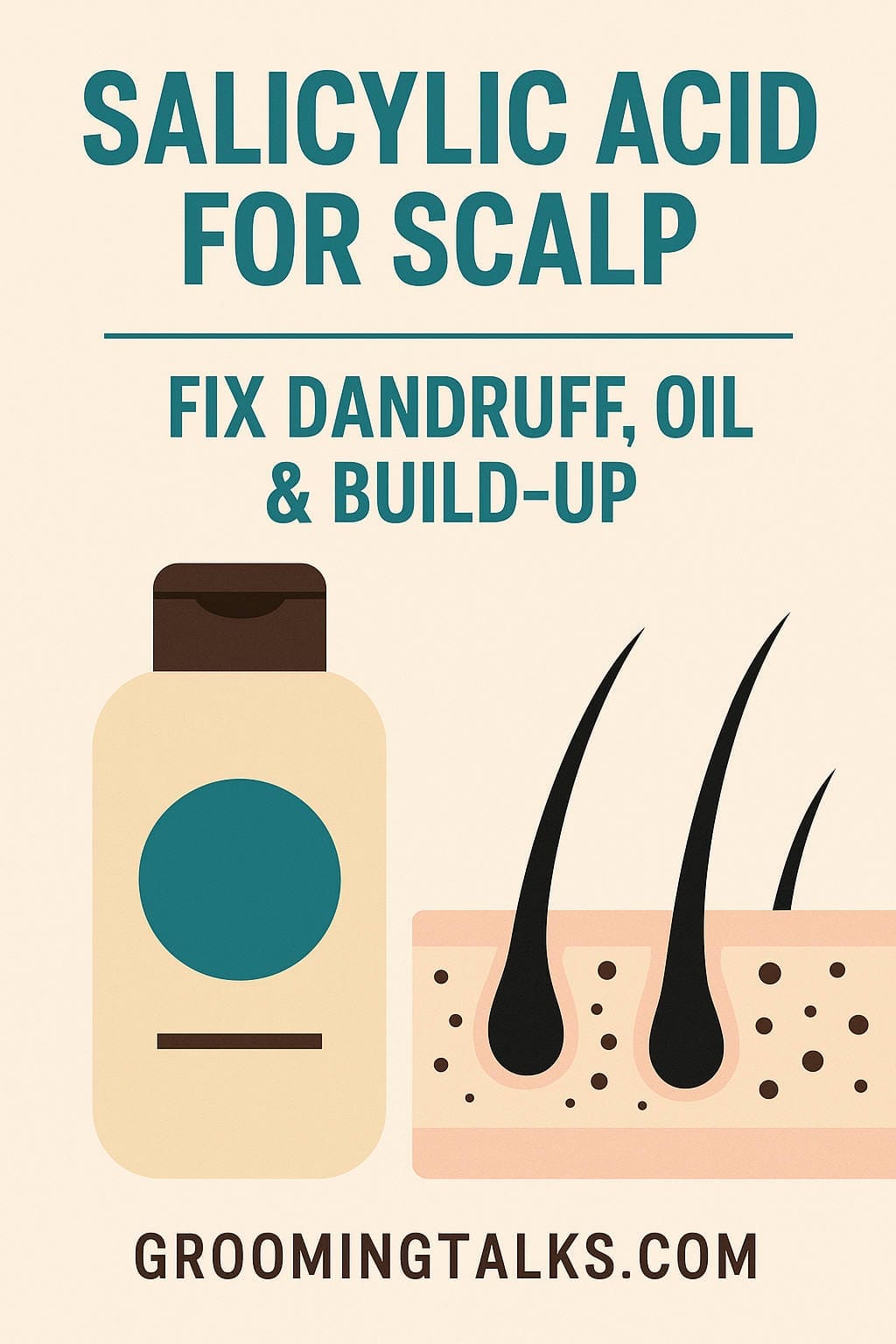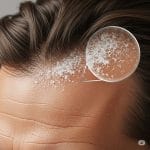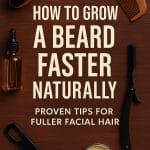If you’re someone who battles a flaky scalp, persistent dandruff, or even scalp acne, chances are you’ve come across the ingredient salicylic acid in shampoos or scalp treatments. This popular beta hydroxy acid (BHA) has long been a staple in facial skincare routines, especially for people with oily or acne-prone skin. But recently, it’s made its way into haircare too. The question is: is salicylic acid actually good for your scalp?
In this comprehensive, easy-to-follow guide, we’re diving deep into the world of salicylic acid and its effects on your scalp. We’ll unpack what it does, who should (and shouldn’t) use it, how to use it safely, and what dermatologists really think about incorporating it into your hair care regimen.
What Is Salicylic Acid, Really?
Salicylic acid is a type of beta hydroxy acid (BHA) that comes from willow bark. It’s oil-soluble, which gives it a unique ability to penetrate deep into pores and hair follicles, making it a go-to ingredient for breaking down oil, dead skin, and buildup.
In the skincare world, it’s best known for treating acne, blackheads, and even keratosis pilaris. But those same exfoliating and clarifying properties make it ideal for addressing scalp issues like flakiness, excess oil, and clogged follicles.
Why Should You Care About Scalp Health?
Most of us focus heavily on face skincare but often neglect the scalp. The truth is, your scalp is just as important. It’s the foundation of your hair health, and if it’s not in good shape, you’re more likely to deal with issues like:
- Itchy, flaky skin
- Dandruff
- Product buildup
- Scalp acne or folliculitis
- Thinning or shedding hair
When the scalp is unhealthy, it creates a poor environment for hair follicles, making it harder for hair to grow strong and healthy. That’s where ingredients like salicylic acid come in.
How Does Salicylic Acid Work on the Scalp?
Salicylic acid is a keratolytic agent, which means it helps break down keratin—the protein that makes up our skin and hair. This action helps shed dead skin cells more efficiently. When applied to the scalp, it can:
- Exfoliate dead skin: Removing the buildup of dead skin prevents clogged follicles and flakiness.
- Dissolve oil and buildup: Because it’s oil-soluble, it can dig deep into pores and cleanse them of excess sebum.
- Reduce inflammation: It has mild anti-inflammatory properties, which help soothe irritation.
- Clear up scalp acne: By unclogging follicles, it can help reduce bumps and breakouts on the scalp.
What Do Dermatologists Say?
Dr. Marisa Garshick, Board-Certified Dermatologist:
“Salicylic acid is especially effective for managing flakiness and buildup on the scalp. It can help people with conditions like seborrheic dermatitis or oily scalps, but it’s important to use it in moderation.”
Dr. Michelle Henry, Clinical Dermatologist:
“I often recommend salicylic acid shampoos for patients with dandruff or scalp psoriasis. It helps loosen flakes and improves product absorption.”
Dr. Howard Sobel, Dermatologic Surgeon:
“As long as the scalp isn’t overly dry or sensitive, salicylic acid can be a safe and effective solution. However, combining it with other strong actives should be done with caution.”
Benefits of Using Salicylic Acid on the Scalp
Let’s break down the advantages of incorporating salicylic acid into your scalp care routine:
1. Fights Dandruff
Salicylic acid doesn’t treat the fungus that causes dandruff (like some other ingredients do), but it helps by loosening and removing the flakes so your scalp is cleaner and more comfortable.
2. Unclogs Follicles
Clogged follicles can contribute to inflammation, acne, and poor hair growth. Salicylic acid clears out debris, giving follicles room to breathe.
3. Reduces Oiliness
If your hair gets greasy fast, you might have an overactive scalp. Salicylic acid dissolves oil and helps restore balance.
4. Improves Product Penetration
By clearing away buildup, it allows serums and scalp treatments to work more effectively.
5. May Support Healthy Hair Growth
While it doesn’t directly stimulate growth, it creates a cleaner, healthier environment for follicles to thrive.
Who Should Use It—and Who Shouldn’t
Great for You If You Have:
- Dandruff or seborrheic dermatitis
- Oily or acne-prone scalp
- Psoriasis (in mild to moderate cases)
- Heavy product use or buildup
Use With Caution If You:
- Have a dry or sensitive scalp
- Suffer from eczema
- Are prone to allergic reactions
- Are already using other exfoliating or drying products
Tip: Always patch-test new products and consult a dermatologist if you’re unsure.
How to Use Salicylic Acid Safely on Your Scalp
There are a few different ways to incorporate salicylic acid into your routine:
1. Shampoos
These are the easiest and most common method. Use 1–3 times a week depending on your scalp type. Look for shampoos with 1–3% salicylic acid.
2. Scalp Serums
These targeted treatments often contain salicylic acid along with other calming or hydrating ingredients.
3. Scalp Scrubs
Physical exfoliants that include salicylic acid can be effective but should be used sparingly—no more than once a week.
4. Prescription Medications
In severe cases like chronic scalp psoriasis, your doctor might prescribe a stronger concentration.
Best Practices When Using Salicylic Acid
- Don’t overdo it: 1–2 times a week is plenty for most people.
- Follow with hydration: Use a moisturizing conditioner or scalp serum afterward.
- Avoid combining with other actives: Don’t mix with retinoids, strong AHAs, or peroxide-based treatments without professional guidance.
- Watch for irritation: If you experience burning, redness, or increased dryness, stop use and consult a healthcare professional.
Product Recommendations: Top Salicylic Acid Scalp Treatments
Here are some dermatologist-approved products to consider:
Neutrogena T/Sal Therapeutic Shampoo
- Contains 3% salicylic acid
- Great for treating dandruff, seborrheic dermatitis, and scalp psoriasis
- Fragrance-free and dermatologist-recommended
The Inkey List Salicylic Acid Exfoliating Scalp Treatment
- 2% salicylic acid
- Lightweight and easy to apply before shampooing
- Also contains soothing panthenol
Paul Mitchell Tea Tree Special Shampoo
- Contains natural tea tree oil and salicylic acid
- Invigorating and cooling effect on the scalp
- Ideal for oily or congested scalps
Cantu Refresh Root Rinse
- Apple cider vinegar and salicylic acid combo
- Perfect for cleansing protective styles and braids
- Budget-friendly and sulfate-free
Natural Alternatives to Salicylic Acid (If You’re Sensitive)
If you find salicylic acid too strong or irritating, there are gentler options to try:
- Tea tree oil: Antimicrobial and calming
- Aloe vera: Hydrating and soothing
- Witch hazel: A natural astringent for oily scalps
- Apple cider vinegar: Clarifies and restores pH balance
These alternatives may not exfoliate as powerfully but can still support overall scalp health.
Comparing Salicylic Acid with Other Scalp Treatments
| Ingredient | Best For | How It Works |
|---|---|---|
| Salicylic Acid | Oiliness, flaking, buildup | Exfoliates dead skin and dissolves oil |
| Ketoconazole | Fungal dandruff | Antifungal agent |
| Zinc Pyrithione | Mild dandruff | Reduces fungus and bacteria |
| Coal Tar | Psoriasis, seborrheic dermatitis | Slows skin cell turnover |
| Glycolic Acid | Buildup and dryness | Exfoliates surface layers and hydrates |
Common Myths About Salicylic Acid on the Scalp
Myth 1: It Causes Hair Loss
Not true. When used correctly, salicylic acid won’t cause hair loss. In fact, it can promote a healthier environment for hair growth.
Myth 2: It’s Only for Dandruff
While it’s great for dandruff, it also helps with oil control, buildup, and even scalp acne.
Myth 3: More Is Better
Nope. Overuse can strip the scalp and lead to dryness or sensitivity. Moderation is key.
Final Thoughts: Should You Try Salicylic Acid for Your Scalp?
If you’re struggling with an oily, flaky, or congested scalp, salicylic acid might be the ingredient you’ve been missing. It’s effective, dermatologist-approved, and widely available in various affordable products.
That said, not every scalp will react the same. It’s crucial to listen to your body, patch test, and adjust usage based on how your scalp feels. If you have ongoing scalp issues or a skin condition, always consult with a dermatologist before starting any new treatment.
At the end of the day, taking care of your scalp is just as essential as looking after your face. With the right approach and a bit of patience, salicylic acid can help bring balance, clarity, and health back to your scalp—and your hair will thank you for it.
Your Turn!
Have you tried salicylic acid for your scalp? What worked—or didn’t work—for you? Share your experiences or questions in the comments below!






